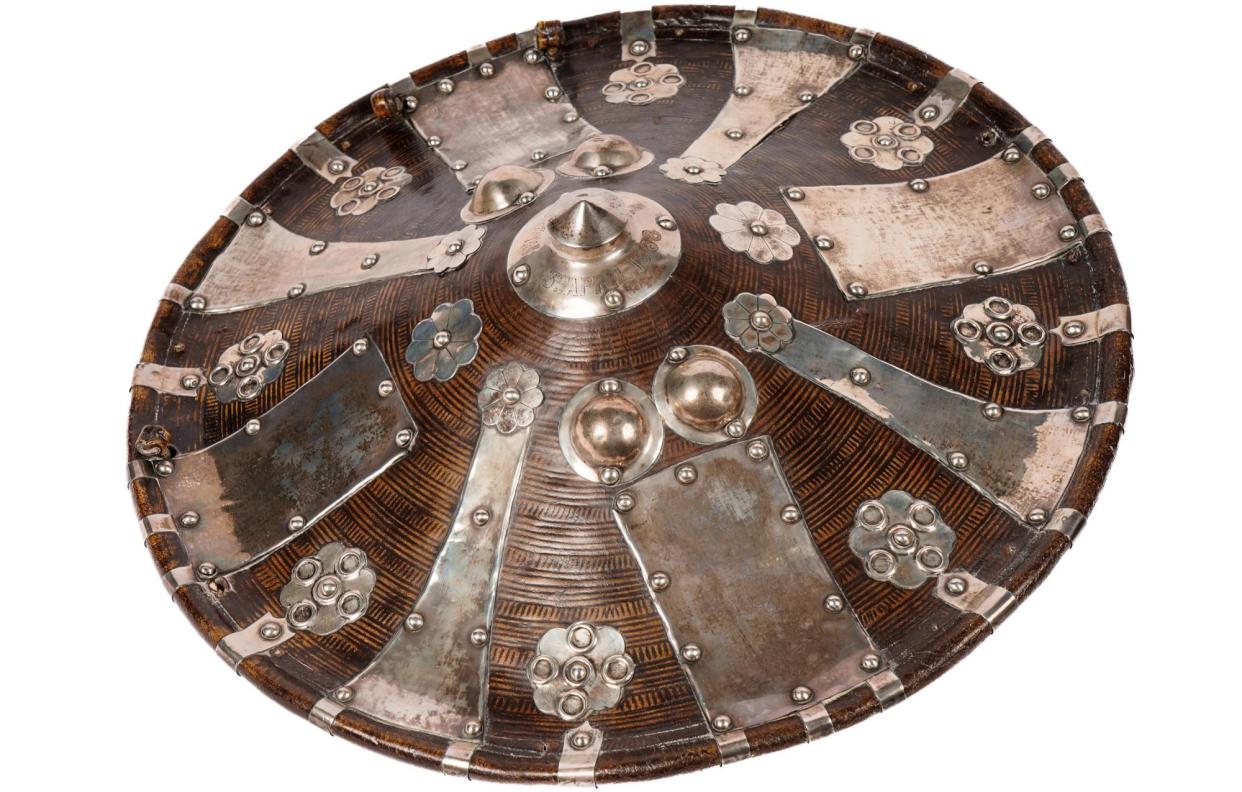Ethiopian government tries to stop UK auction of looted Maqdala shield

The Ethiopian government has called the auction of a looted colonial-era shield “inappropriate and immoral” as it attempts to stop its sale this week and prevent it from disappearing into a private collection.
The Anderson & Garland auction house, in Newcastle upon Tyne, was contacted by the Ethiopian National Heritage national restitution committee about the 19th-century Abyssinian shield, which it said should be removed from the auction set to take place on Thursday.
The committee, part of Ethiopia’s ministry for tourism, asked the auction house to instead begin the restitution process and return the item to the east African country, from where it had been taken during the Battle of Maqdala (also known as Magdala, with the village now Amba Mariam) in 1868.
The battle led to the defeat of Emperor Tewodros II by Lord Napier, whose troops looted thousands of items, returning with them to the UK where they ended up in private collections as well as in the British Museum and the Victoria and Albert Museum (V&A).
The shield, which the auction house describes as having a “circular dome shield made from hide and decorated in blind, with white metal strapwork and floral appliquets”, includes a central boss with an engraved description that reads: “Magdala 13th April 1868.”
“Since the artefact has been wrongfully acquired in a context of a punitive expedition to Ethiopia in which these items were looted, the sale of this item in your auction is inappropriate,” the letter from the committee says.
A representative of Anderson & Garland acknowledged receipt of the letter, but the company did not provide further comment.
The Ethiopian government has been appealing for decades for the return of items taken in 1868. In 2007, it unsuccessfully asked for the return of hundreds of Maqdala artefacts – including manuscripts, regalia and jewellery – being held by British institutions.
In 2018, before an exhibition of artefacts from Maqdala, the V&A said some items could be returned to Ethiopia on long-term loan, while an appeal backed by Stephen Fry and Lemn Sissay urged the British Museum to return its Maqdala items.
In 2021, a leather-bound Coptic bible and a set of horn beakers was withdrawn from a sale in Bridport in Dorset after the Ethiopian embassy successfully appealed to the auction house and seller to “stop the cycle of dispossession”.
The Ethiopian embassy said more than 20 private collectors had returned Maqdala items after restitution requests.
There has been growing pressure over recent years on all European institutions that hold items taken during the colonial era. Several of the Benin bronzes, looted by British forces in 1897 from what is now Nigeria, have been returned by British institutions after decades of campaigning.
Earlier this month, Westminster Abbey agreed “in principle” to returning a sacred tablet to the Ethiopian Orthodox church. The move by the abbey puts pressure on the British Museum, which has 11 tabots in its collection that are not on display and are available to be visited by Ethiopian Orthodox priests.

 Yahoo News
Yahoo News 
